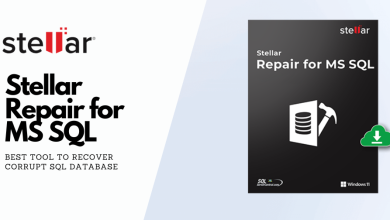How Custom Software Can Completely Transform a Manufacturing Business

In the fast-paced world of manufacturing, staying competitive requires more than just efficient processes and skilled personnel. It demands adaptability, innovation, and the ability to leverage technology to its fullest potential. One such technological innovation that has revolutionized the manufacturing landscape is custom software.
What is Custom Software?
Custom software refers to tailor-made programs designed to meet the specific needs of a business or industry. In manufacturing, where operations are often complex and varied, custom software plays a crucial role in streamlining processes, enhancing efficiency, and driving growth.
The manufacturing industry encompasses a wide range of sectors, including automotive, electronics, pharmaceuticals, and consumer goods. Each sector faces its own unique set of challenges, from supply chain management to quality control to regulatory compliance. Custom software offers a tailored solution to these challenges, enabling businesses to operate more effectively and competitively.
Challenges Faced by Manufacturing Businesses
Manufacturing businesses encounter various challenges that can hinder their growth and success. These challenges include operational inefficiencies, lack of scalability, and data management issues.
Operational Inefficiencies
One of the primary challenges faced by manufacturing businesses is inefficiency in operations. This can result from manual processes, outdated technology, or lack of integration between different systems. As a result, production cycles may be prolonged, costs may escalate, and customer satisfaction may suffer.
Lack of Scalability
Another challenge is the inability to scale operations to meet changing demand. Traditional manufacturing systems are often rigid and inflexible, making it difficult for businesses to adapt to fluctuations in market conditions. This can lead to missed opportunities for growth and expansion.
Data Management Issues
Data management is a critical aspect of manufacturing operations, but many businesses struggle to effectively collect, analyze, and utilize data. Without access to accurate and timely information, decision-making becomes challenging, and opportunities for optimization are missed.
Role of Custom Software in Addressing Manufacturing Challenges
Custom software plays a vital role in addressing the challenges faced by manufacturing businesses. By providing tailored solutions to specific needs, custom software can help streamline operations, enhance scalability, and improve data management.
Streamlining Operations
Custom software allows businesses to automate repetitive tasks, eliminate bottlenecks, and optimize workflows. By streamlining operations, businesses can reduce lead times, minimize errors, and improve overall efficiency.
Enhancing Scalability
Unlike off-the-shelf software, which may be limited in its scalability, custom software can be designed to grow and evolve with the business. This flexibility allows businesses to adapt to changing market conditions and seize opportunities for growth.
Improving Data Management
Custom software enables businesses to centralize and standardize data collection, storage, and analysis. This provides greater visibility into operations, facilitates informed decision-making, and enables businesses to identify and address inefficiencies more effectively.
Key Features of Custom Software for Manufacturing
Custom manufacturing software typically includes a range of features designed to address the specific needs of the industry. Some key features include:
Real-time Monitoring
Custom software allows businesses to monitor key metrics and performance indicators in real time, providing greater visibility into operations and enabling proactive decision-making.
Inventory Management
Effective inventory management is critical in manufacturing, and custom software can help businesses optimize inventory levels, track stock movements, and minimize waste.
Production Scheduling
Custom software enables businesses to create and manage production schedules more efficiently, optimizing resource allocation and minimizing downtime.
Benefits of Implementing Custom Software
The implementation of custom software offers numerous benefits for manufacturing businesses, including:
Increased Productivity
By streamlining operations, automating repetitive tasks, and providing greater visibility into processes, custom software can significantly increase productivity.
Cost Savings
Custom software can help businesses reduce waste, minimize errors, and optimize resource utilization, leading to significant cost savings over time.
Better Decision-making
By providing access to real-time data and analytics, custom software enables businesses to make more informed and strategic decisions.
Factors to Consider When Choosing Custom Software
When selecting custom software for their manufacturing operations, businesses should consider several factors, including:
- Specific business needs
- Scalability and flexibility
- Integration capabilities
- Ease of use and training requirements
- Budget constraints
Challenges in Implementing Custom Software
While the benefits of custom software are significant, businesses may encounter challenges during the implementation process. These challenges may include resistance to change, training requirements, and budget constraints.
Future Trends in Custom Software for Manufacturing
The future of custom software in manufacturing is promising, with several emerging trends shaping the industry:
- Artificial intelligence and machine learning
- Internet of Things (IoT) integration
- Cloud-based solutions
Conclusion
Custom software has the potential to completely transform manufacturing businesses by addressing operational challenges, enhancing efficiency, and driving growth. By investing in custom software solutions that are tailored to their specific needs, businesses can gain a competitive edge in today’s rapidly evolving market.






